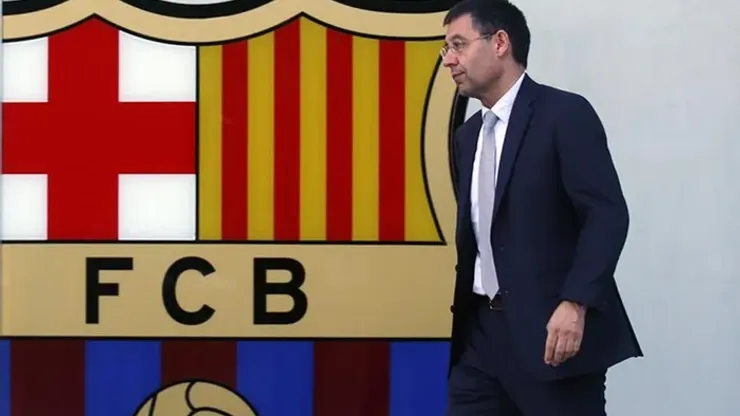When Joan Laporta came to power back in 2003, Barcelona was a club in turmoil. It had been four years since since the Blaugrana had won a major trophy and the Catalan club could barely cope with the immense dominance of rivals Real Madrid and Valencia.
Not now, though. Just six months ago, Barcelona were left reeling from a loss to David Moyes’ Real Sociedad at the Anoeta. Luis Enrique’s tenure was hanging on by the skin of his teeth, and the board was forced to call early elections to dissolve the tension. Bartomeu, for all it was worth, was a dead man walking.
Remarkably, days out from the election, Bartomeu was considered the favourite for the presidential hot-seat at the expense of, as Agusti Benedito put it, his worst enemy. But it seemed the businessman with airport and seaport facilities to his name was always that one step ahead. At the end of the day, Laporta made a meal of his campaign, and if anything, he was his own worst enemy.
In early March, a poll from Catalan radio show El Club de la Mitjanit found that the former president had 51% percent of the votes, a sizeable majority over Bartomeu who had only garnered 27% of the votes from respondents, that is, before he even confirmed his intention to run as president.
But, in hindsight, his three-month campaign can be characterised by one which was severely disorganised and grossly improvised. For a man who, as a former politician arguably knew of the secrets to political success, his mistakes costed him oh so dearly.
Of all presidential candidates, Laporta was the last one to submit a bid for presidency. His lengthy hesitancy in announcing his bid was only a sign of things to come in a campaign which was shallow, lacking in any real substance and full of urgency.
“A vote for Joan would be a vote for La Masia, for UNICEF, and for the Barça of Cruyff, Messi and Guardiola” was his catch-cry. However catchy his slogan proved to bed, the campaign in the end seemed more self-centred than club centred with his message wavering.
“My relationship with [Lionel] Messi is great. We’re telepathic,” Laporta would say, only for Bartomeu to hit back with: “I’m not; I pick up the phone.” The 52-year-old was making the point that it was under him that Messi initially flourished and that under Rosell, then Bartomeu, the 28-year-old was unhappy with life at Barca. Effectively, Laporta was the best man to keep Messi happy at the club and away from those wishing to sell him.
He also focused on the Neymar fraud case and the transfer ban in what he considered to be the destruction of La Masia. Ironically, the man who had been so vocal of Real Madrid’s Galactico policy as well as being a staunch defender of championing the likes of Sergio Samper and Gerard Deulofeu, said that he was the key to bringing in Paul Pogba – a gifted yet inexplicably expensive signing – citing a good relationship with both player and club.
Then there’s the Qatar sponsorship, which Laporta promised would be removed and replaced with their former UNICEF sponsorship.
Meanwhile, Bartomeu built steadily towards victory after calling for elections in January. Success on the pitch engineered by Lionel Messi, Neymar and Luis Suarez in what was a treble winning season under the guidance of Luis Enrique effectively saw the president’s popularity soar.
A Catalan phrase effectively summed up Bartomeu’s prospect: “quan la pilota entra, millor no fer-nos mal which means “when the ball crosses the line, it’s better not to hurt ourselves” – if it isn’t broken, why fix it.
In addition, his ability to resolve the Dani Alves dispute, sign Aleix Vidal from Sevilla, tie up Luis Enrique to the club as well as acquire Arda Turan, a move which has his fingerprints all over it, only helped to secure his position at the club.
But Barcelona pride themselves in being ‘mes que un club’ and that remains Bartomeu’s biggest challenge, that is, to ensure Messi remains at the club for years to come, to restore La Masia to its previous best as well as unravelling and implementing future local talent, something which has proved contentious thus far.
Judging by the support he got from the 47,000 votes from the socios, Bartomeu effectively has the power to move the club forward. The hard work starts now.
200+ Channels With Sports & News
- Starting price: $33/mo. for fubo Latino Package
- Watch Premier League, Women’s World Cup, Euro 2024 & Gold Cup
The New Home of MLS
- Price: $14.99/mo. for MLS Season Pass
- Watch every MLS game including playoffs & Leagues Cup
Many Sports & ESPN Originals
- Price: $10.99/mo. (or get ESPN+, Hulu & Disney+ for $14.99/mo.)
- Features Bundesliga, LaLiga, Championship, & FA Cup
2,000+ soccer games per year
- Price: $5.99/mo
- Features Champions League, Serie A, Europa League & Brasileirāo
175 Premier League Games & PL TV
- Starting price: $5.99/mo. for Peacock Premium
- Watch 175 exclusive EPL games per season






